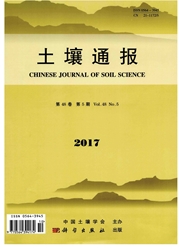

 中文摘要:
中文摘要:
功能群研究最早应用于植物生态学,后应用到微生物生态学中。微生物功能群指在物质流中具有特定生物学功能的微生物集合体,这种分类与生物分类学原则无关,只是指它的生物学功能相同或相近,如固氮微生物功能群、溶磷微生物功能群、氨化微生物功能群及纤维素降解微生物功能群等。国内外有关微生物功能群的研究报道主要涉及到草地、农田及森林等生态系统;研究微生物功能群的方法有应用选择性培养基进行分离培养,也有在新鲜土壤中接种特定底物并连续记录底物的利用情况,从而评价土壤原位具有特殊代谢功能的微生物生物量或利用分子生物学技术进行研究。微生物功能群的研究在工业、农业、环境治理、医学及基因工程方面均有重要的现实意义。笔者认为将有更多的学者将目光投向微生物功能群的研究。
 英文摘要:
英文摘要:
The studies on functional groups were the earlie st applied in the study of plant ecology, and then in microbial ecology. Microbial functional groups were the collectivity of microorganism with specific biological function in the material flow, and this classification is not relative to the principal of taxonomy but only because of the same or similarity of biological function, such as nitrogen-fixation microbial functional community, phosphoros-solubilizing microbial functional community, ammonifiers microbial functional community, cellulose-decomposition microbial functional community and so on. There are many domestic and abroad reports related to microbial functional groups, referring to ecological system of grassland, farm field and forest ecosystem. The method to study microbial function is to apply to choose culture agar for separating and culturing. The biomass of microbial functional groups can be determined by measuring the amount of substute using or carbon dioxide from respiration, or the PCR techniques are used to describe the microbial functional genes. The studies on microbial functional groups have important significances for industry, agriculture, protecting environment, medicine and gene engineering.
 同期刊论文项目
同期刊论文项目
 同项目期刊论文
同项目期刊论文
 期刊信息
期刊信息
